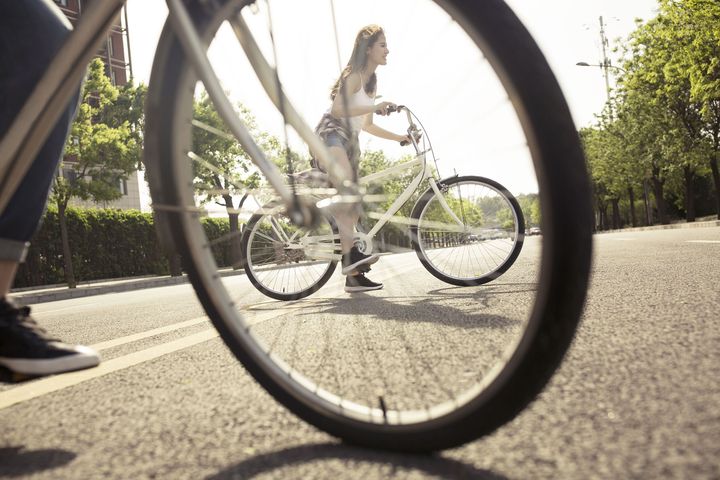 China's Efforts to Mitigate Climate Change
China's Efforts to Mitigate Climate Change(Yicai Global) Dec. 3 -- By signing the Paris Agreement in 2016, China committed to the target of limiting the global temperature rise to less than 2 degrees Celsius above pre-industrial levels. In practical terms, that means that China must cut its carbon emissions by two-thirds before 2030. Despite the US administration's pulling out of the agreement, China is still pursuing its goals with new governmental policies, innovative business models, grassroots actions and changing consumer habits.
In fact, China has exceeded its target thus far. At the 2018 Global Climate Action Summit in San Francisco, Xie Zhenhua, China's Special Representative for Climate Change, said that "China's carbon dioxide emissions per unit of gross domestic product fell over 4 billion tonnes in 2017, down 46 percent from 2015."
China's coal consumption declined steadily from 2013 to 2016, as growth in the construction and manufacturing sectors gave way to expansion in service industries. Renovation projects to upgrade coal-fired boilers in the northeastern regions of Beijing-Tianjin-Hebei, along with efforts to obtain heat from waste and geothermal energy, both helped to reduce coal consumption by 190 million tonnes in 2016. Meanwhile, China has increased its consumption of natural gas and non-fossil fuels.
At the governmental level, the State Council has released the National 13th Five Year Plan for the Development of Strategic Emerging Industries, which says that China will promote new energy cars, buses and trucks, energy conservation and environmental protection as "pillar industries."
Business practices have been evolving as well. In November 2017, businesses from nine sectors, representing a total of 450,000 Chinese companies, jointly issued a series of low-carbon initiatives at the COP23 meeting in Bonn, Germany. A consensus on reducing emissions in rural settings was also reached. One typical initiative is the Global Alliance for Clean Cookstoves project, Initiated by Hillary Clinton in 2010, it came to Yan'an, in the northwestern Shaanxi province, in 2017. It uses clean energies such as solar, biogas and biomass molding fuel to reduce carbon emissions caused by the traditional practice of burning straw for heating and cooking.
During the 2017 World Economic Forum, Fintech giant Ant Financial Services Group started the Green Digital Finance Alliance together with the United Nations Environment Programme. The Chinese firm also started a public welfare project named Ant Forest, which encourages app users to choose public transport, pay utility fees online, and buy paperless tickets. The total reduction of carbon emissions reached 670,000 tonnes by April of last year, as calculated by the Hangzhou-based firm.
The rapid development of China's e-commerce sector has brought huge sustainability challenges to the logistics sector. Last year during the annual "Double 11" online shopping frenzy, e-commerce giant Alibaba Tmall delivered approximately one billion parcels, for an estimated 100,000 tonnes of packaging waste.
In response, e-commerce and logistics companies have started to provide environmentally friendly packaging solutions. Alibaba Group Holding now uses special algorithms to minimise packaging, and saved 45 million boxes thanks to the practice last year. Tech firm Xiaomi uses big data to select appropriate packaging that is recyclable and minimalist – even including water-soluble tape.
Electronics retailer Suning has introduced a system whereby a courier comes to collect boxes after delivery. The online shopping platform JD.Com promotes electronic receipts and tape-free cartons in some of its businesses. Logistics firm SF Express uses ice boxes and repeat packaging in its cold chain logistics. Cargo carrier SF Airlines saves 2,000 tonnes of jet fuel each year by optimising its flights and improving its brake systems.
The Chinese public has also become more attuned to green lifestyles as the number of sharing economy services has increased. For example, bike-sharing firms Mobike and Ofo are helping to create a trend towards clean commutes. Last year, Mobike reduced 1.27 million tonnes of carbon emissions and nine billion microgrammes of particulate matter from the air. Ofo accounted for a total carbon emissions reduction of 3.24 billion tonnes by the end of last year, and was planning to start recycling old and broken bikes.
Going forward, China plans to continue fulfilling its international responsibilities regarding climate change, all the while pursuing its economic and energy needs.
This article is being published as part of Solutions&Co, an international and collaborative initiative gathering 20 business media from around the world to focus on companies scaling up against climate change.
